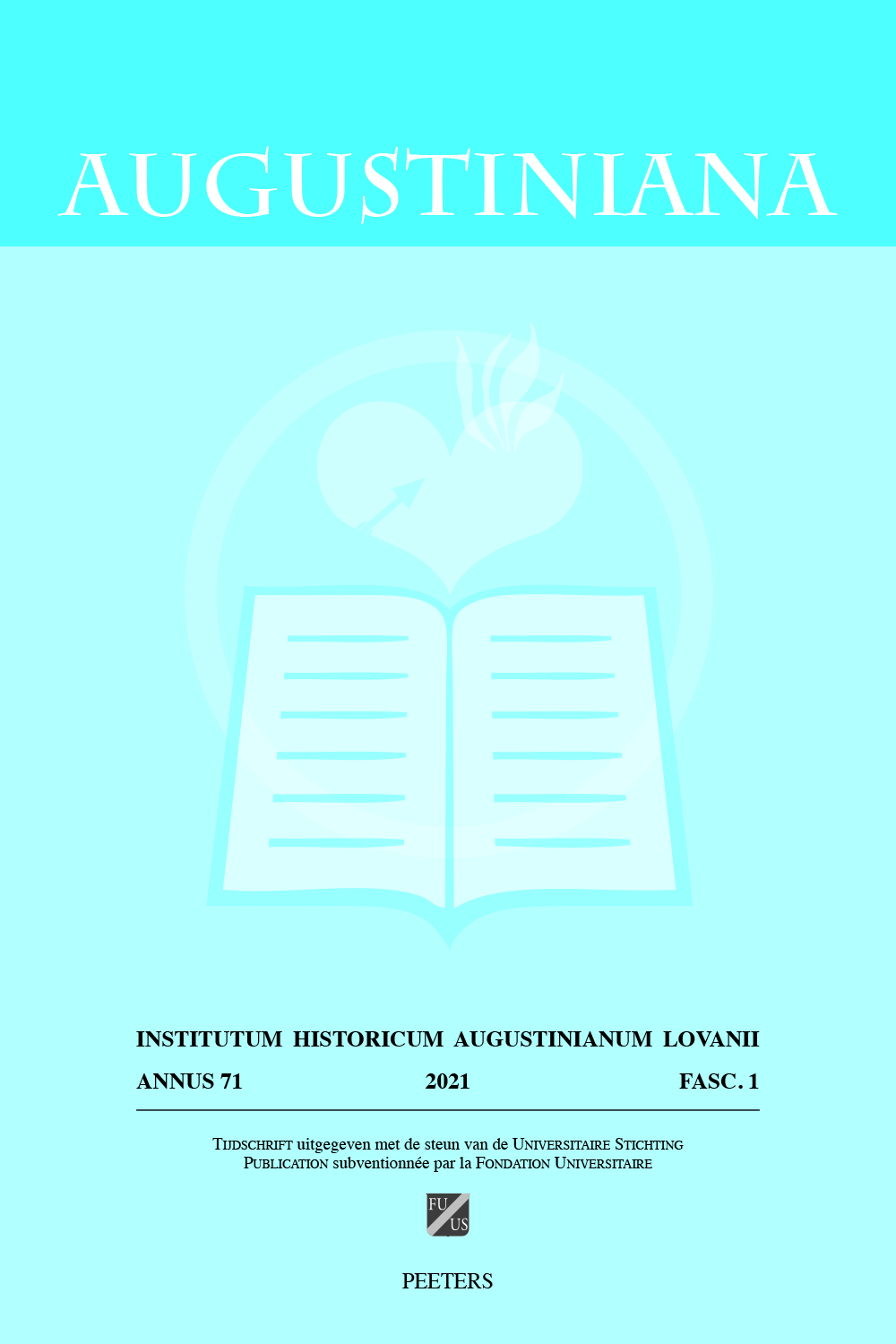 previous article in this issue previous article in this issue | next article in this issue  |

Preview first page |
Document Details : Title: 'Stir Up the Heart' Subtitle: The Use, Protreptic Purpose and Theological Significance of the Verb excitare in Augustine's Confessions Author(s): REIMER, Jonathan Journal: Augustiniana Volume: 63 Issue: 1-4 Date: 2013 Pages: 155-172 DOI: 10.2143/AUG.63.1.3013250 Abstract : Following Augustine’s own reconsideration of his seminal work in Retr. 2.6.1, this article argues that a close reading of the usage of the verb excitare ('stir up, excite, arouse, wake up') throughout the Confessions clearly reveals the ways in which protreptic literary features shaped the communicative purpose of this text as well as how this classical rhetorical model was reframed in light of Augustine’s evolving theological convictions (after 396 CE). To demonstrate the protreptic purpose and theological significance discernible in the use of this verb, this essay carefully explores both the rhetorical traditions in which Augustine was schooled and the theological perspectives he came to hold. By exploring Augustine’s use of protreptic language in describing his own encounter with Cicero’s Hortensius (Conf. 3.4.8; 8.7.17), a work composed according to the classical model of λόγος προτρεπτικός, this essay reveals how protreptic communicative purpose shapes the central leitmotif of the Confessions (Conf. 1.1.1; 5.1.1; 11.1.1), disclosing the ways in which the expanding discourse of being 'stirred up' forms a complex and evangelizing theology of human participation in divine love. In light of these evaluations, this essay contends that Augustine’s Confessions must be considered a work of protreptic theology, composed with explicit intentions to enfold and ultimately convert its readers. |
 |


